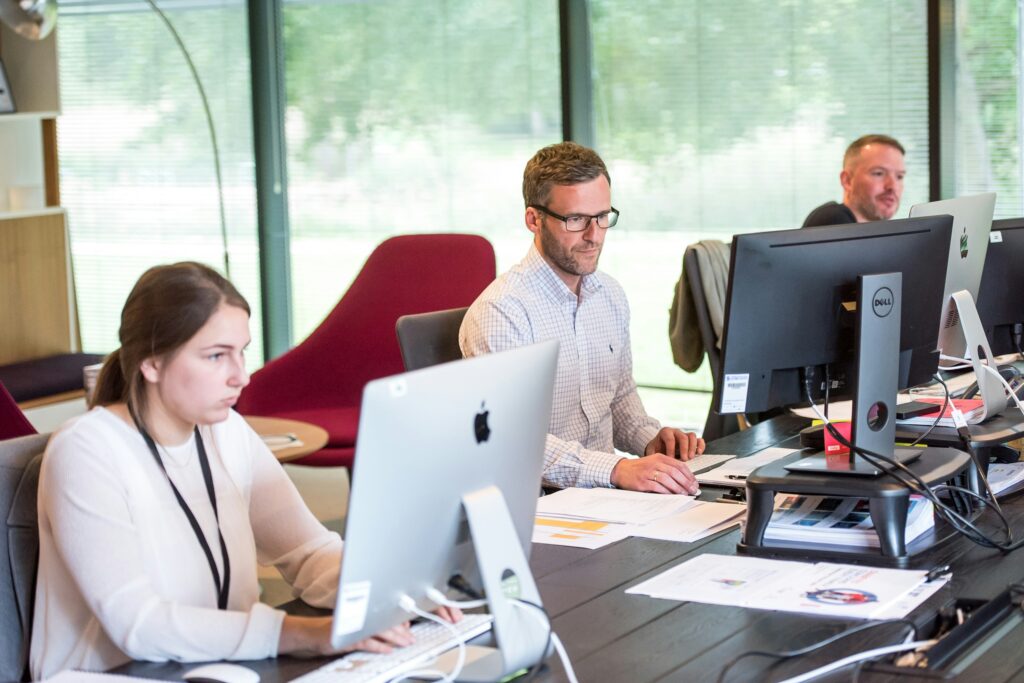Table of Contents
- Understanding Employee Experience (EX) in Startups
- The Role of EX in Startup Growth
- Best Practices for Enhancing Employee Experience
- 1. Cultivating a Positive Workplace Culture
- 2. Implementing Employee Engagement Initiatives
- 3. Focusing on Talent Retention Strategies
- The Future of Work: Remote Employee Engagement
- Leveraging Technology for Enhanced EX
- Building a Resilient Startup Team
- Creating Opportunities for Growth and Development
- Conclusion: The Strategic Importance of EX for Startups in 2025
In the rapidly evolving landscape of 2025, Employee Experience (EX) emerges as a pivotal strategy for startups aiming for sustainable growth. This article delves into the significance of EX in enhancing workplace culture, boosting employee engagement, and ensuring talent retention. By adopting best practices in HR and team building, startups can leverage EX as a secret weapon to navigate the challenges of the future of work.
Unlock the potential of your startup in 2025 by prioritizing Employee Experience (EX) as your secret weapon for growth. Invest in your team, foster a positive culture, and watch your business thrive. Don’t miss out on valuable insights—Subscribe to the Kanguru Academy newsletter today!
Understanding Employee Experience (EX) in Startups
Employee Experience (EX) encompasses every interaction an employee has with their organization, from recruitment to exit. In the startup ecosystem, where agility and innovation are paramount, a positive EX can significantly influence productivity and retention rates. According to a study by Gallup, organizations with high employee engagement are 21% more profitable, underscoring the importance of EX in driving business success.

The Role of EX in Startup Growth
As startups strive to carve out their niche in competitive global markets, focusing on EX can lead to enhanced employee morale and loyalty. A robust EX strategy not only attracts top talent but also fosters a culture of innovation and collaboration. In 2025, startups that prioritize EX will likely outperform their competitors by creating an environment where employees feel valued and engaged.
Best Practices for Enhancing Employee Experience
1. Cultivating a Positive Workplace Culture
A thriving workplace culture is the backbone of a successful EX strategy. Startups should focus on creating an inclusive environment that encourages open communication and collaboration. According to a report by Deloitte, organizations with inclusive cultures are 6 times more likely to be innovative and agile. This is particularly crucial for startups that rely on creativity and adaptability to succeed.

2. Implementing Employee Engagement Initiatives
Employee engagement is a critical component of EX. Startups can implement various initiatives such as regular feedback sessions, recognition programs, and team-building activities to foster engagement. A study by Gallup found that organizations with high employee engagement scores see a 41% reduction in absenteeism and a 17% increase in productivity. These statistics highlight the tangible benefits of investing in employee engagement.
3. Focusing on Talent Retention Strategies
In the competitive landscape of 2025, retaining top talent is essential for startup growth. Startups should develop comprehensive talent retention strategies that include career development opportunities, competitive compensation packages, and work-life balance initiatives. According to LinkedIn, 94% of employees would stay at a company longer if it invested in their career development, emphasizing the importance of continuous learning and growth.
The Future of Work: Remote Employee Engagement
The shift towards remote work has transformed the way startups approach employee engagement. In 2025, remote work is expected to remain prevalent, making it crucial for startups to adapt their EX strategies accordingly. Virtual team-building activities, regular check-ins, and the use of collaboration tools can help maintain engagement levels among remote employees.
Leveraging Technology for Enhanced EX
Digital innovation plays a significant role in shaping the future of work. Startups can leverage technology to enhance EX by utilizing tools that facilitate communication, collaboration, and feedback. Platforms like Slack, Zoom, and Asana can help streamline workflows and keep remote teams connected. According to a report by McKinsey, organizations that embrace digital tools see a 20-25% increase in productivity, further reinforcing the need for startups to invest in technology.

Building a Resilient Startup Team
In the face of uncertainty, building a resilient startup team is essential for long-term success. Startups should focus on fostering a culture of adaptability and continuous improvement. Encouraging employees to embrace change and learn from failures can create a resilient workforce capable of navigating challenges. According to a study by PwC, organizations with resilient teams are 3 times more likely to outperform their competitors.
Creating Opportunities for Growth and Development
Investing in employee growth and development is a key aspect of enhancing EX. Startups should provide opportunities for skill development, mentorship programs, and career advancement pathways. By empowering employees to take charge of their professional growth, startups can cultivate a motivated and engaged workforce. A report by the World Economic Forum indicates that 85 million jobs may be displaced by 2025 due to automation, highlighting the need for continuous learning and adaptation.
Conclusion: The Strategic Importance of EX for Startups in 2025
As we look towards 2025, the importance of Employee Experience (EX) as a strategic asset for startups cannot be overstated. By prioritizing workplace culture, employee engagement, and talent retention, startups can create an environment that fosters innovation and growth. Embracing digital tools and focusing on remote employee engagement will further enhance EX, positioning startups for success in an increasingly competitive landscape. In this new era of work, EX will undoubtedly be the secret weapon that drives startup growth and sustainability.


